*This was originally published on April 4, 2020
“This game is slippery. It’s played on ice.”
That quip from coach-general manager Emile Francis was about the only thing New York Rangers had to smile about as they arrived at Madison Square Garden for their season finale against the Detroit Red Wings on April 5, 1970. After spending much of 1969-70 in first place, a late slump triggered by All-Star defenseman Brad Park’s broken ankle left them reporting for their game that afternoon on the verge of missing the Stanley Cup Playoffs for the first time since 1966.
The Rangers knew they needed a miracle. Not only did they have to defeat the Red Wings, who had clinched a playoff berth by defeating them 6-2 the night before in Detroit, but they had to run up the score — and even that might not be enough. New York trailed the Montreal Canadiens in the race for fourth place and the final playoff spot in the East Division not only by two points but also by five goals scored. Under the NHL tiebreaking system used at the time, goals scored was the first tiebreaker for teams that finished with the same record, as the Rangers and Canadiens would if New York won and Montreal lost. A low-scoring victory was no better than a loss — and the Rangers hadn’t scored as many as five goals in a game in more than six weeks.
Needed: One Miracle
“We knew we would have to win the game and score at least five goals to tie them, and then they would have to lose,” Park said. “We knew that before the game, the whole scenario. It was a long shot.”
In Chicago, the Canadiens were relaxing before their game that night against the Black Hawks (that’s how they spelled it then). Chicago had won 4-1 at the Forum in Montreal the night before, costing the two-time defending Stanley Cup champions a chance to clinch a playoff berth. But with a two-point lead and a five-goal advantage, their odds of returning to the playoffs for a chance to win a third consecutive championship still looked pretty good.
Ten hours later, the Canadiens were former champions — and the Rangers proved the wisdom of Francis’ one-liner.

Most Rangers fans had all but given up before the team took the ice. The Garden was usually packed by the time the Rangers took the ice, but there were huge pockets of empty seats visible when the puck dropped shortly after 2 p.m. – although to be fair, the game was being shown locally (a rarity at the time) on CBS.
“When we went out onto the ice at the Garden, there were about 7,000 or 8,000 people in the building,” Park remembered.
That Park was playing at all was an accomplishment. The Rangers were in first place when he broke his ankle during a game at Detroit on Feb. 19; they went 3-10-3 until he returned March 28, a 1-1 tie with the Canadiens in Montreal. The Rangers followed with wins against the Canadiens and Toronto Maple Leafs, giving themselves a slim chance to make the playoffs entering the final weekend of the season.
Park’s Return Was Key
“I broke my ankle and made it back maybe a week or 10 days before [the end of the season],” Park said. “I wasn’t as mobile as I wanted to be because I had a brace inside my skate. I wasn’t in midseason form or anything like that, but I was back in the lineup and I was pretty happy about that.”
The fans who were on hand for the opening face-off saw the Rangers play a game like none they’d played since entering the NHL in 1926.
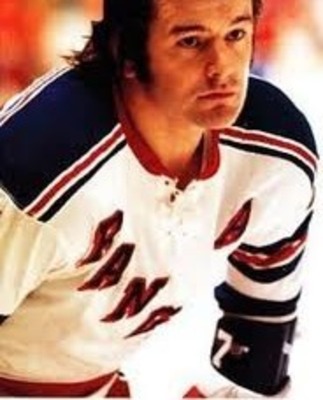
After nearly scoring on the first shift, New York went ahead 36 seconds into the game on a goal by Rod Gilbert, pumping some life into the sparse crowd. Gilbert’s lack of production was one reason the Rangers were on the verge of missing the playoffs; he entered the game with 14 goals after scoring 28, 29 and 28 in the previous three seasons. Gilbert had been a fan favorite throughout his career, but on this day the Garden faithful let him know their displeasure.
“That was an emotional game for me,” he remembered more than four decades later. “I was always one of the fans’ favorites, I tried hard all the time, and that year was the same. But for some reason, I didn’t produce, compared to the years before. I had a poor season for some reason. I had some injuries, but that’s no excuse. The fans were down on me because we were in the position of not making the playoffs, basically because I didn’t produce the way I had in the past.”
But one goal wasn’t going to turn the boos to cheers.
“I scored the first goal,” he said, “and to my great surprise they booed me. They booed my name. It was the first time that had ever happened to me in my career in New York. Wow.”
Difference-Maker
However, Francis said Gilbert’s goal made a big difference.
“Gilbert’s goal ignited us,” he said. “It came so quickly that even the guys who thought that maybe we couldn’t do it were now thinking, ‘Maybe we can.’ I could almost feel it on the bench.”
Red Wings defenseman Gary Bergman tied the game at 3:08, but the Rangers kept coming. Jack Egers, a rookie forward with a booming shot who had been called up a few days earlier, put the Rangers ahead to stay with a power-play goal at 8:25. Dave Balon scored at 12:31, Egers got his second at 17:48 and New York led 4-1 after one period.
“It was incredible,” Francis said. “We hadn’t gotten three goals in a period in almost two months. That was probably the best game Egers ever played in his career.”
For the first 75 games of the season, the Rangers had been a tight, defense-first team. But with the playoffs on the line, Francis totally changed his strategy.
“I told the guys right from the start, ‘Let’s run ’em off the ice,'” he said. “And run ’em off the ice is what we did.”
The 15-minute intermission didn’t cool down the Rangers, but there was one change when they returned to the ice.
More Goals Equal More Fans
“We scored four goals in the first period — we came out for the start of the second period, and there were something like 12,000 people in the building now,” Park said.
Gilbert again got his team off to a quick start, beating Roger Crozier 20 seconds into the period. That made it 5-1 and gave the Rangers at least the possibility of passing the Canadiens. The Garden crowd, perhaps sensing that they were something special, reacted a lot differently to Gilbert’s second goal.
“I scored the fifth goal, which gave us a chance [to tie the Canadiens],” Gilbert said. “So they announce my name — ‘Goal scored by Rod Gilbert’ — and I got a standing ovation. They boo me when I score the first goal and they’re cheering me when I scored the fifth one. It was wonderful. I didn’t expect that.
“And then we kept going.”
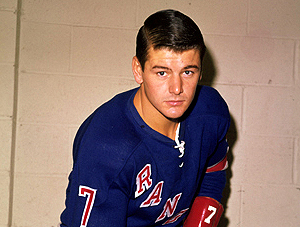
Detroit’s Frank Mahovlich cut the lead to 5-2 at 4:21, but two goals by Ron Stewart bumped the lead to 7-2. A late goal by Pete Stemkowski of the Red Wings made it 7-3 after two periods.
By now, word that there was something special going had gotten around. A lot of fans who had opted to skip the game changed their plans and headed to the Garden.
“We scored three more goals in the second, so we came out for the third period and the building was full,” Park said. “We were up 7-3 going into the third period, which meant we had our five goals and a couple more, but we knew we needed more. The building was full, and that gave us even more get up and go.”
Packed House
The Rangers outshot the Red Wings 39-15 through two periods, but they knew they couldn’t let up. Balon, New York’s top goal-scorer, kept the momentum going when he beat Crozier 1:21 into the third period, then completed a hat trick at 9:48 with his 33rd goal of the season.
But even a 9-3 lead wasn’t enough for Francis. With the Rangers firing at will against Crozier, he pulled his own goalie, Ed Giacomin, for an extra attacker with less than four minutes remaining. Pulling the goalie to build on a six-goal lead was something no one had ever seen.
“I decided to pull the goalie and I told Ed in the intermission he was coming out,” Francis remembered years later. “He understood and the players all understood. We had the game well in hand. So they scored a couple of goals, but we threw all caution to the wind.”
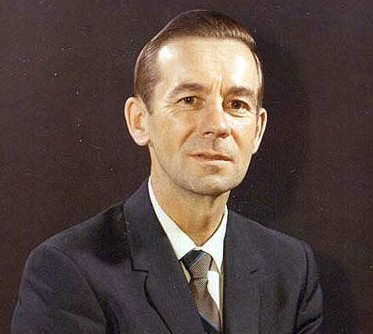
Detroit’s Gordie Howe and Nick Libett hit the empty net in the final minutes, but the game ended 9-5. The Rangers finished with 65 shots, a team single-game record that still stands. More importantly, they were now even in points with the Canadiens and had outscored them by four goals. That meant Montreal needed a win, a tie or to score at least five goals against Chicago to pass the Rangers. If the teams ended with the same number of goals scored, the Rangers would advance because they had allowed 189 goals in 76 games, two fewer than the Canadiens had surrendered in 75.
You may also like:
- NHL Morning Recap – February 27, 2026
- Rangers Should Sit Vincent Trocheck Until He Is Traded
- NHL Mock Trade Deadline: 8 Win-Win Deals
- Rangers News & Rumors: Trocheck, Rempe, Lafreniere
- NHL Rumors: Bruins & Oilers Linked to Flyers, Plus Trocheck and Bobrovsky Talk
Compounding the pressure for Montreal was that the Black Hawks, unlike the Red Wings, had something to play for. A victory would give Chicago its second first-place finish since entering the NHL in 1926. The Blackhawks needed two points to tie the Boston Bruins with 99; but their 45 wins would be five more than the Bruins and assure them of first place in the East.
The stunning win left Rangers fans scrambling. Two diehards reportedly flew to Chicago and managed to get tickets for the game at Chicago Stadium. For most Rangers rooters in those pre-cable TV days, it was a matter of twisting and turning their radio dials, hoping to get the game on a Montreal or Chicago station.
Hockey by Telephone
Francis returned to his home on Long Island and went out for a long walk, but his players reassembled on the East Side of Manhattan — where in the pre-Internet age, Park found his own way to keep up with the action in Chicago.
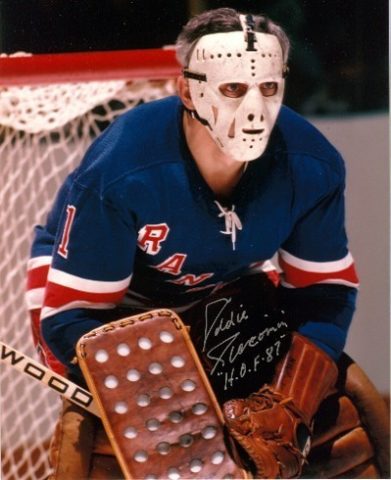
“I ended up at a bar on First Avenue called Mr. Laffs, and someone called their mother in Chicago and got her on the phone,” he said. “She put the radio on, and I was sitting in the back by the bathrooms where the phone was, listening to the third period — I didn’t listen to the whole game, but I listened to the third period, yelling out the scores. Chicago was up like 3-1 and then 4-2, and Montreal pulled their goalie — then it was 5-2, 6-2, and they’re trying to generate at least five goals.
“But it didn’t happen.”
When the final horn went off in Chicago, the Black Hawks owned first place after hitting the empty net five times in a 10-2 victory. More astonishingly, the Rangers had snuck into fourth place. New York and Montreal each finished 38-22-16, good for 92 points, but the Rangers ended the season with 246 goals to 244 for Montreal. Under the tiebreaking system used at the time, they earned the final playoff berth in the East.
It was a memorable night for Park in more ways than one.
“I was only in my second year, and my salary was $11,000,” he said. “When we got into the playoffs, I bought a round for the bar — the most expensive round I ever had. But you can bet that I enjoyed it.”
Sweet Celebration for Gilbert
To Gilbert, a Montreal native, the fact that the Rangers had made the playoffs at the expense of the Canadiens made the trip to the postseason a little bit more special.
“It was quite a celebration,” he said. “A memorable, memorable game because I’m from Montreal, and to knock those [guys] out — it had been 20-25 years since they’d missed the playoffs.
“We weren’t particularly fond of the Canadiens. We never won too many games against them, so we said, ‘Maybe this is the time we put them out of their misery. And Chicago did. It was amazing — that feeling that Montreal didn’t make it.”
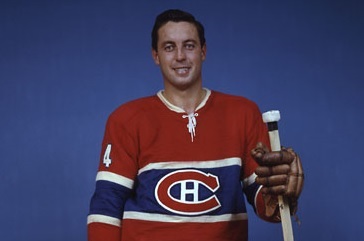
While the Canadiens headed home, the reprieved Rangers headed for Boston. Under the playoff format used at the time, the second-place Bruins and fourth-place Rangers met in the Quarterfinals, with Boston winning a hard-fought six-game series on the way to its first championship since 1941.
It was the 30th straight season without a Cup for the Rangers, who would go title-less for another 24 years before Mark Messier led them to their first championship since 1940.
The Canadiens were stunned to miss the playoffs for the first time since 1947-48 and not have the chance to win their third straight championship. But they bounced back from their disappointment by winning the Cup in 1971, the first of six championships in a nine-season span. Their 24th (and most recent) title came in 1993, one year before the Rangers ended the longest championship drought in NHL history.
